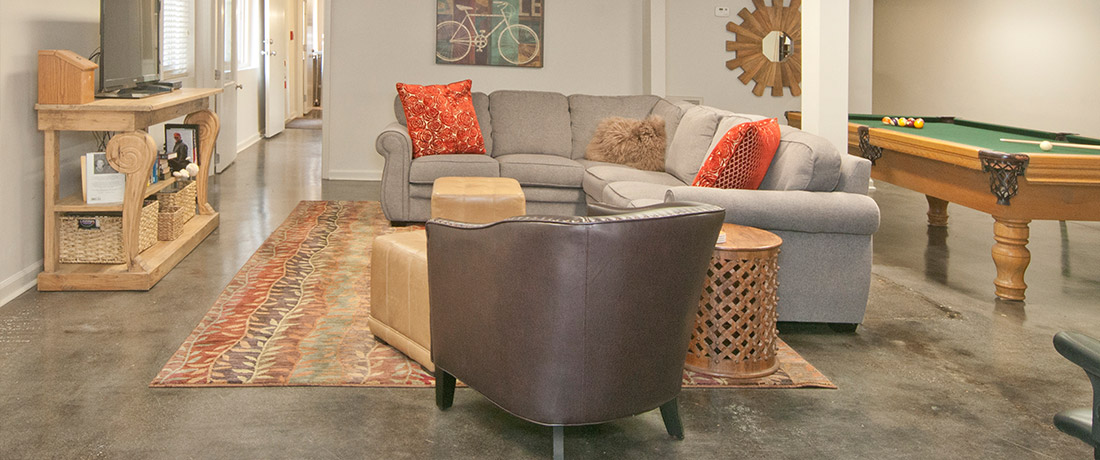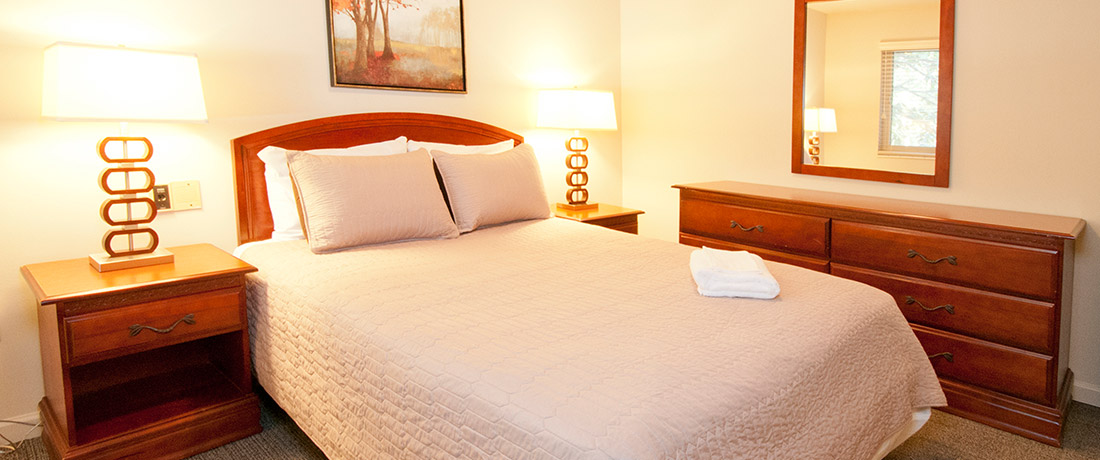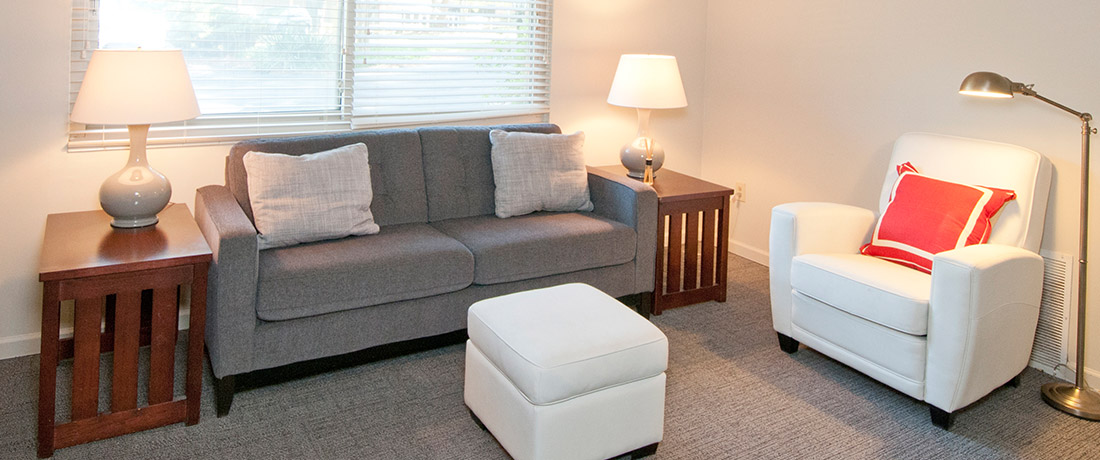Adult Transitional Living Program
Skyland Trail offers transitional housing apartments on the Skyland Trail North Transitional Living campus where clients live on their own with moderate support from our staff. Skyland Trail North includes 13, two-bedroom apartments. Transitional clients have a private bedroom, and share a bathroom and living area with another client. Skyland Trail North also includes community living areas, a community dining room and kitchen, and gardens.

Transitional Living Eligibility
Clients may live in transitional housing at Skyland Trail North while in the day treatment or intensive outpatient programs. Residential clients may not live in transitional housing. Clients may continue to live in the Skyland Trail North Transitional Living community for one year after they graduate from Skyland Trail intensive programs as long as they continue to meet transitional living program expectations and requirements for therapeutic engagement and purposeful activities in the community.
Note that space in our transitional housing program is limited. Not all clients will qualify for our transitional housing program. Clients in our dual diagnosis program and clients with a history of substance use cannot be adequately supported in our transitional housing program and will be referred to a third party recovery residence or sober living community.

Transitional Living and Independence Coaching
An independence coach visits transitional clients in their apartments at least once each week (more frequently if needed) to ensure clients are successfully adjusting to independent living and are taking their medications appropriately. The coach also provides assistance with practical matters like paying bills, planning transportation, accessing community resources and making and sticking to a schedule.

Transitional Living and Outpatient Programs
Clients in transitional housing may enroll in additional outpatient programs. The Life Enrichment Adult Program (LEAP) provides regular socialization opportunities that help clients meet new friends, develop relationships and grow in their sense of self-worth and belonging. At this time, LEAP activities include support groups, book clubs, art and music lessons, group fitness and recreation, and outings to outdoor venues in the community where physical distancing is possible. Transitional clients may also be interested in vocational services, or primary care services through the Glenn Family Wellness Clinic.
